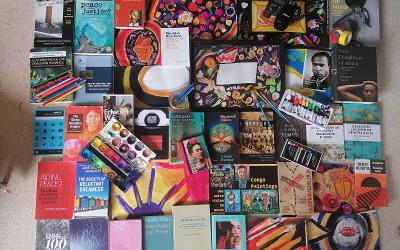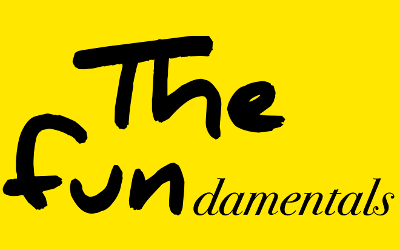£2M research project decolonises how peace is taught in Africa

OU researchers are leading a £2.1M project funded by the Arts & Humanities Council aimed at decolonising peace education in Africa.
Led by Professor Parvati Raghuram, the Decolonising Education for Peace in Africa (DEPA) project, has developed 14 projects across 13 African countries, to develop materials to teach peace, resourced by local communities.
The aim of the teaching resources is to explore how African knowledges and beliefs can decolonise how peace is taught and incorporated into education in Africa.
Using a range of participatory arts-based methods founded on emancipatory principles; researchers, artists, communities and educators in a diverse array of conflict-affected settings are creating locally attuned decolonial teaching materials for formal and informal learning.
Professor Raghuram said:
“This programme begins from the idea that we should focus on peace rather than on conflict in Africa and put our focus on everyday peace in African communities and to look at this as education for peace.”
Watch the video to hear more from Professor Raghuram:
Hi, I'm Parvati Raghuram, Professor of Geography and Migration at the Open University. I'm also the Principal Investigator of the Arts and Humanities Research Council project Decolonizing Education for Peace in Africa.
This project begins from the idea that we should focus on peace rather than conflict in Africa and to build our premises, our projects, on the already existing values and knowledges of peace that people live through and enact in their everyday lives.
It focuses therefore on everyday peace in African communities.
This gives us an opportunity to look at values, skills and knowledges that are required in peace and how to apply these already existing knowledges in peace education programmes and in overall education.
To look at this as education for peace. To embed this in forms of teaching and through pedagogy in different subject areas for different groups across multiple countries in Africa.
We currently have 14 projects across 12 countries, and the projects have a mixture of NGOs, arts activists, educators and partners both in the UK and in the countries in which the research is being conducted.
And the projects use a variety of arts methods such as storytelling, Photovoice and Soundscapes and the materials that are generated through this, build educational materials which really emphasize the knowledges and values that already existed in these conflict communities and it embeds them in the teaching, at different levels.
So, from 11 to 14 year olds and from those who are older people, as well as for adults.
And the aim here is to then use these to build a peace education framework which is offered on the continent free of charge through open education resources which are held at UNISA, The University of South Africa. And so that all that knowledge stays in the continent and for the continent.
And that is part of our decolonial promise.
[Music]
My name is Joseph Hadaga Dahala, I speak Glavda from Arboko Village Gwoza local government, Borno State, Nigeria.
Glavda is spoken by only 100,000 people mostly in North-Eastern Nigeria and northern parts of Cameroon.
It is the language that is becoming extinct.
So, DEPA project in Abuja is working with Glavda speaking elders living in Internally Displaced Persons (IDP) camps, who have been displaced as a result of insurgents.
We want to know their stories and their knowledge about peace for, to be heard now and for [the] future.
DEPA is working with Glavda elderly speaking people in order to preserve our culture, traditions, norms and values.
Glavda people are peace loving people and we want to pass this to our generationa.
We don't want our generations to go outside our norms and traditions because our norms and traditions are teaching good moral values to our younger ones.
So, DEPA is helping us in preserving these norms and culture, so that we can pass it to our children.
[Music]
[Music]
[Music]
[Music]
The Trans activism project, from a PhotoVoice methodology, is looking to gather experience from people affected by conflict but are also marginalised groups we need to think from a perspective of an education strategy for peace that includes marginalised groups that are affected by violence in a context of toxis hypermasculinity but, also in masculinity dominated contexts.
So, we intend to look at it from a city of Maputo perspective, but we also intend to look from a context that is directly affected by conflict in Nampula province.
And from there try to empower, through activism initiaties, these communities who are Trans, who are part of the LGBT community, in order to engage in a process of discussion and education for peace.
[Music]
[Music]
[Music]
[Music]
[Music]
Hi, my name is Volley Nchabeleng, from South Africa.
I'm a percussionist, specializing in indigenous African instruments.
I'm a composer, producer and a singer.
For me, Soundscapes, is an interpretation of the mood and the feeling, and how you feel you know.
But but you interpret that through music.
You know, working with community, we go through their daily....
Uh, the instant feeling, and we interpret that through the music and the instruments.
Where I come from, and I grew up from the rural areas.
We have a different way of interpreting music. And music can tell the story in many ways.
So, Soundscapes can really define the moment of tension or happiness and the moment of clash.
Through Soundscapes, I was able to, you know, to feel and to share with the community and combine them together through, you know, through, through music.
You know, we get together, we play different types of instruments, or body percussion.
You know, we create Soundscapes through anything that is around us.
Like, it can be a body percussion, hand clap.
We can stomp on our feet.
And sometimes we do a polyrhythm pattern in groups.
Or this group will play this melody and the other one play this melody.
And we combine together as a one song and that kind of symbolizes peace.
That's, that's unity.
[Music]
[Music]
[Music]
My name is Grace Muvunyi Nshimiyumukiza.
I work for a refugee led organisation called Youth, Education and Sports, as a social emotional learning coordinator.
The different ways of defining peace within a humanitarian context is very important because one, we are talking about the act of bringing in the participatory action.
You know, that aspect of having every refugee participate in defining what peace means within their own context or within their own nature.
And number two, it's about the voices.
For so many years, people have been relying on literature reviews to define what peace means and you know what peace education is within the traditional classroom.
But now, when it comes to the refugee context, we really need to have the voice of the refugees being heard in defining what they would define peace to mean to them and how they would want to be educated on peace education.
AHEEN's model challenges the traditional model of peace education because of its three components.
That's the arts, sports and engineering.
It's through those three pillars or components that we are able to define peace education and also are able to import the competencies, such as the self-awareness,
you know, responsible decision making, social awareness, and all the other competencies that are found within the social emotional learning wheel.
[Music]
My name is Eyasu Amante Dasa.
I work for Family Guidance Association of Ethiopia on the position of Eastern Area Manager.
I think we have, in our programme which is called parent-youth dialogue sessions....
We need to bring the parents with their children and have some conversations with them.
What their children want to be in the future and what the reality is the ground.
And to reduce or to remove the existing traditional practices that inhibit the young, girls especially from attending their schools.
We need to work on women empowerment.
And we have girls club and the gender club at every school So, in schools, there's a discussion, parent-youth dialogue is very important.
The PhotoVoice exhibition is what we have learned unique from this project
When they look at the photo they see what is in their local area but they relate that with sexual and gender-based violence and how it is existing in their area and they will design, maybe, how to tackle it or how to remove it from their local community.
We want to continue in the future because the PhotoVoice exhibition, through that the session, we have learnt a lot and also the community and the school principals are requesting to have a PhotoVoice tool in their school.
[Music]
DEPA will connect, compare and create knowledge and skills about peace and peace education, across these different projects, so that it can help to develop education tools and resources for teachers in multiple countries in Africa.
But also to flip this and to provide some educational material about Africa from Africa for use for teachers in the UK.
And we hope that that will make a lasting legacy which will connect education systems across the two continents.
[Music].
DEPA has worked with a diverse range of conflict-affected communities including:
- internally displaced populations and migrants experiencing xenophobia in Nigeria and South Africa
- those who experience gender and sex-based discrimination and violence in Ethiopia and Mozambique
- school teachers, artists and activists in schools in Cameroon and Sierra Leone affected by climate change and unequal access to land.
The team has co-produced teaching resources, formal and informal using different art forms such as storytelling, photovoice and soundscapes. Together the project is developing a learning framework that builds on insights gained from across the project and can be used across the continent.
Dr Raghuram added:
“Current peace education materials are largely produced by national and international organisations and rarely use local resources, pedagogies or base themselves on local knowledges of peace. DEPA fills that gap.”
You may also be interested in:
Contact our news team
For all out of hours enquiries, please telephone +44 (0)7901 515891
Contact detailsNews & articles

The FUNdamentals: Why fun matters more than we think
In a world that feels increasingly serious and pressured, fun can seem like a guilty pleasure — something optional, even frivolous. But what if fun isn’t an add on at all? What if it’s essential?